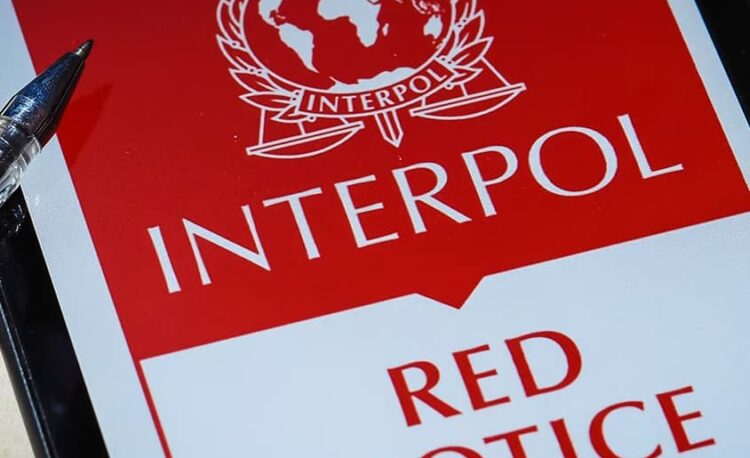An Interpol Red Notice is an international mechanism for pursuing individuals suspected of committing crimes, and acts as a request for the location and arrest of said individuals with the aim of extradition. However, not every Red Notice is based on objective grounds, leading to the need to challenge its validity. This process requires an understanding of international law, Interpol procedures, and the possible legal grounds for cancelling the notice.
What is a Red Notice from Interpol?
An Interpol Red Notice is an international alert issued at the request of a member country of Interpol to seek the location and arrest, or provisional detention, of an individual with the aim of their subsequent extradition. This notice is not an international arrest warrant, but it carries significant weight as many countries view it as a basis for detaining an individual. It’s important to note that a Red Notice can be used as a tool for political pressure, particularly in countries with unstable legal systems.
In the event of issues related to an Interpol red notice, we recommend contacting Anatoly Yarovoy, the solicitor of the Interpol law firm, who will promptly provide you with all the necessary legal protection and case support up to the court decision.
Grounds for Contesting an Interpol Red Notice
Breach of Interpol rules
One of the primary grounds for challenging a red notice is the violation of Interpol’s own rules. According to Article 3 of the Interpol Constitution, the organisation must abstain from any intervention in matters of a political, military, religious, or racial character. If a notice is issued for political reasons, for example, against an opposition leader, it can be contested as breaching Interpol’s principles of neutrality.
Considerations of human rights
A crucial aspect of challenging a red notice is the adherence to human rights. The European Court of Human Rights has repeatedly emphasised that extraditing an individual based on a red notice may infringe upon their right to a fair trial, the right to life, and freedom from torture. If the country requesting the notice has a proven track record of human rights violations, this can serve as grounds for its cancellation.
Breaches of legislation
Legislative breaches can also provide grounds for challenging a red notice. For instance, if the notice was issued in violation of the national legislation of the requesting country, or if the statute of limitations for the crime has expired, the notice may be deemed invalid. It’s important to bear in mind that Interpol does not have the authority to make legal judgments, but operates within the framework of international cooperation, and any procedural violations can lead to the cancellation of the notice.
Legal procedures for the removal of an Interpol red notice
Having a Red Notice from Interpol removed requires a comprehensive legal approach and an understanding of international procedures. Initially, one must submit an application to the Commission for the Control of Interpol’s Files (CCF), which reviews complaints about the legitimacy of notices. The application should include evidence of violations, such as political motivation or human rights abuses. The Commission examines the case to ensure compliance with Interpol’s Constitution and, if violations are found, may recommend the cancellation of the notice.
If filing a claim with the CCF doesn’t yield results, the next legal avenue involves taking your case to international judicial bodies, such as the European Court of Human Rights, if human rights have been violated. It’s important to note that the process of getting a notice removed can be lengthy and requires a comprehensive legal strategy.
Seek expert legal support from Anatoly Yarovoy, a solicitor at the Interpol law firm, who has extensive experience in removing Interpol’s red notices. Additionally, our solicitor is a human rights expert and will provide you with comprehensive legal assistance in the area of human rights protection and policy, particularly within the context of the European Union.
Issues and Limitations in Removing Interpol’s Red Notice
The process of removing an Interpol Red Notice is fraught with a number of complexities and limitations. Firstly, Interpol operates on the basis of information provided by member countries, and the organisation does not conduct independent investigations into each case. This means that the legal basis for the notice may be questionable, but its removal requires significant effort and evidence.
Secondly, even after the removal of a red notice in the Interpol system, information about the individual can remain in national databases, creating additional risks for travel and business activities. In some instances, states continue to ignore Interpol’s recommendations and keep individuals on their lists of suspects, complicating their legal situation.
How can an Interpol lawyer assist you?
A qualified solicitor specialising in Interpol red notices is a crucial component in the process of challenging and removing a red notice. The solicitor can assist in preparing and submitting an application to the CCF, gather the necessary evidence, and provide legal defence at international forums. An experienced lawyer can also coordinate actions with national authorities to minimise the consequences of the notice, including lifting restrictions on travel and business activities.
A solicitor also plays a crucial role in advising a client on matters of extradition and the potential legal repercussions associated with a red notice. Understanding international laws and national legal systems enables the lawyer to devise a strategy aimed at protecting the client’s interests and minimising risks.
